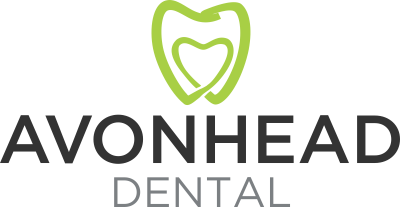TMD (Temporomandibular Joint Disorder) – Understanding & Treating Jaw Pain
Do you experience frequent headaches, jaw pain, clicking sounds, or difficulty opening and closing your mouth? These symptoms could be signs of Temporomandibular Joint Disorder (TMD), a condition that affects the jaw joint (TMJ) and surrounding muscles.
At Avonhead Dental, we provide expert diagnosis and treatment for TMD, helping you reduce pain, restore function, and improve your quality of life.
What is TMD?
The temporomandibular joint (TMJ) is one of the most complex joints in the body, connecting your lower jaw (mandible) to the base of your skull. It allows your jaw to move smoothly for chewing, speaking, and yawning.
TMD (Temporomandibular Joint Disorder) occurs when the muscles, ligaments, or joint itself become irritated, inflamed, or misaligned, leading to pain and dysfunction.
Signs & Symptoms of TMD
TMD symptoms can range from mild discomfort to severe pain. Some common signs include:
⚠ Clicking or popping sounds in the jaw when opening or closing
⚠ Frequent headaches or migraines
⚠ Jaw pain or tenderness, especially in the morning
⚠ Difficulty opening or closing the mouth fully
⚠ Pain in or around the ear (sometimes mistaken for ear infections)
⚠ Pain when yawning, chewing, or speaking
⚠ Jaw joints that feel ‘locked’ or ‘stuck’
⚠ Teeth grinding (bruxism) and jaw clenching
If you experience any of these symptoms, it’s important to seek a professional evaluation to prevent worsening pain and complications.
Who is at Risk for TMD?
TMD can affect anyone, but it is most common in women between the ages of 20-40.
Risk factors include:
✔ Jaw injuries (e.g., impact from an accident or fall)
✔ Teeth grinding or clenching (bruxism), often caused by stress
✔ Arthritis or joint-related conditions affecting the jaw
✔ Poor posture, leading to strain in the neck and jaw muscles
✔ Stress and anxiety, which contribute to muscle tension
Because TMD can worsen over time, early intervention is key to managing symptoms and preventing further discomfort.
Treatment Options for TMD
At Avonhead Dental, we take a conservative, step-by-step approach to TMD treatment. Most cases do not require surgery, and symptoms can be managed effectively with non-invasive treatments.
Non-Surgical Treatments (First-Line Options)
🔹 Jaw Rest & Dietary Adjustments
✔ Eat soft foods and avoid hard, chewy, or sticky foods that aggravate symptoms.
✔ Minimise extreme jaw movements, such as yawning widely or biting into large foods.
🔹 Pain & Inflammation Management
✔ Apply heat packs for muscle relaxation or ice packs for inflammation.
✔ Use over-the-counter pain relief (as recommended by your dentist).
🔹 Stress Reduction & Jaw Exercises
✔ Practice jaw relaxation techniques such as meditation or breathing exercises.
✔ Try gentle jaw stretches and strengthening exercises to improve mobility.
🔹 Night Guards & Splints
✔ A custom-fitted night guard or splint can reduce teeth grinding (bruxism) and relieve jaw tension.
🔹 Physiotherapy & Massage Therapy
✔ Targeted jaw physiotherapy can improve joint function and muscle flexibility.
✔ Some patients find relief from TMJ-specific massage therapy.
Surgical Treatment (For Severe Cases Only)
Surgery is only recommended if all non-surgical treatments fail.
📌 How common is surgery for TMD?
🔹 7 in 10 people experience TMD symptoms at some point.
🔹 1 in 4 people report symptoms that affect daily life.
🔹 Only 2-3 out of 1000 TMD patients require surgical intervention.
Types of surgical procedures may include:
✔ Arthrocentesis – A minimally invasive procedure to remove joint inflammation.
✔ TMJ Arthroscopy – Uses a small camera to diagnose and treat joint damage.
✔ Joint Surgery or Replacement – Rarely needed but considered for severe joint deterioration.
If surgery is necessary, we will refer you to a specialist for further evaluation.
How to Prevent TMD Symptoms
✅ Maintain Good Posture – Avoid slouching, especially if working long hours at a desk.
✅ Manage Stress – Reduce jaw tension with relaxation techniques and self-care.
✅ Avoid Excessive Gum Chewing – This can strain jaw muscles.
✅ Use a Night Guard if You Grind Your Teeth – Prevents clenching-related jaw pain.
✅ Be Gentle with Your Jaw – Avoid excessive yawning and hard foods.
Book a TMD Consultation Today
If you’re experiencing jaw pain, clicking sounds, or headaches, don’t ignore the symptoms—early treatment can prevent long-term discomfort.
